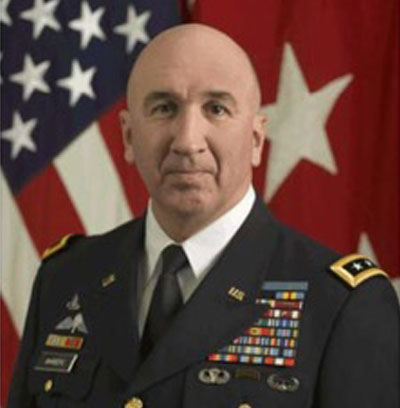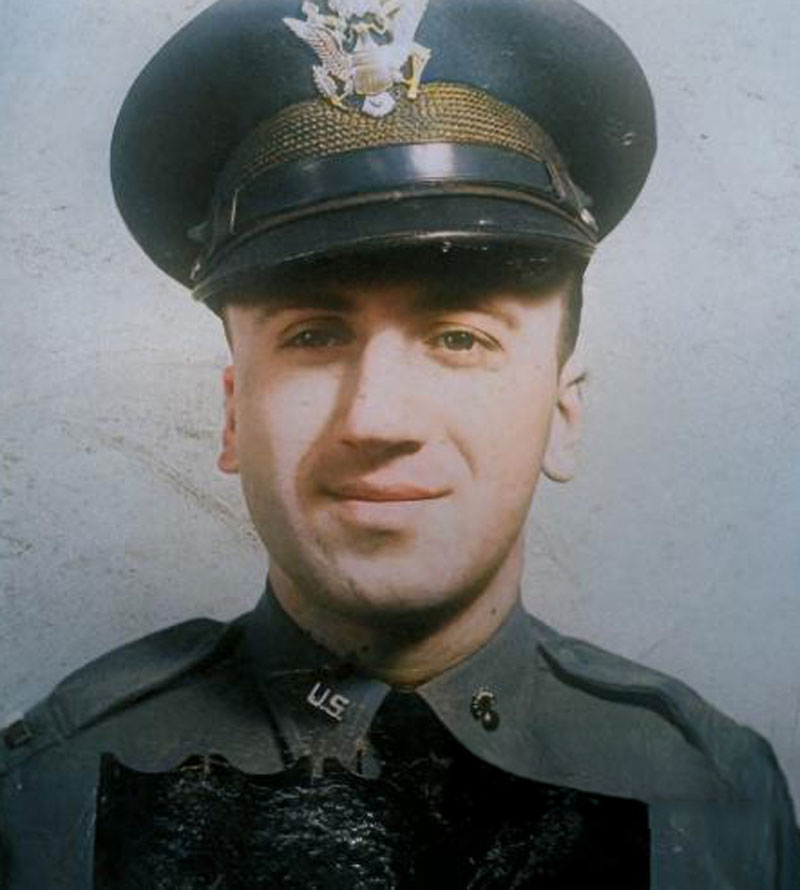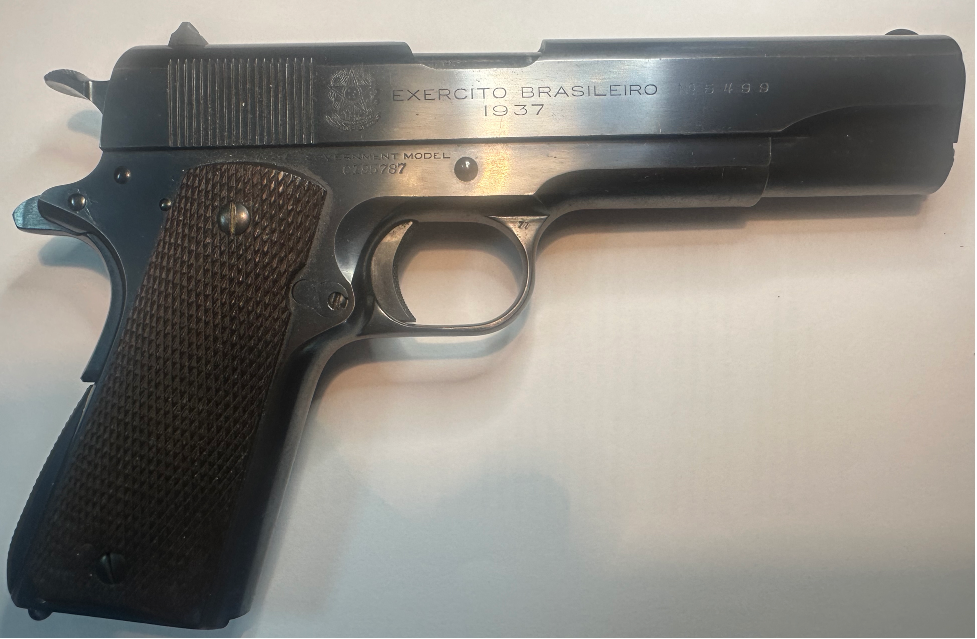A Truly Allied Legacy: LTG Michael Barbero (Ret.) on His Father in the Italian Campaign



An American general honors his father, an Italian-American U.S. officer whose language, leadership, and courage united American and Brazilian forces in Italy.

As part of our ongoing series highlighting members of the National Committee for the United States of America, The Allies Museum – World War II Liberation of Italy sat down with Lieutenant General (Ret.) Michael D. Barbero, United States Army, for a conversation with Founding Director Guido Molinari. A decorated officer who commanded U.S. forces at every level from lieutenant to lieutenant general—including 46 months in Iraq—General Barbero brings both personal and professional insight to the Allied story. The proud son of Colonel (Ret.) Eugene C. Barbero, an Italian-American U.S. Army officer who trained and served alongside the Brazilian Expeditionary Force in the Italian Campaign, LTG Barbero reflects on his father’s remarkable service, the enduring bonds of the Allied effort, and the importance of remembering this truly international fight for freedom.
Your father’s story is remarkable — an Italian-American officer serving with Brazilian troops in Italy. Can you tell us about his service and his experience in the war?
My father, Eugene C. Barbero, was born in New York City to Italian parents who had emigrated from Canelli, Italy. He was commissioned as a U.S. Army lieutenant upon graduating from New York University in June 1941. After the United States entered the war, he was assigned to Brazil as a liaison officer to the Brazilian Expeditionary Force (BEF) during its formation and training. He deployed to Italy with that unit and served in the Italian Campaign with the BEF until November 1944. He was later assigned as Division Ordnance Officer with the U.S. 88th Infantry Division (The “Blue Devils”), serving through the end of the war and the post-war occupation in northern Italy.
When I asked him how he was chosen for Brazil, he said that since he grew up speaking Italian at home, his Army record noted his fluency—and the Army figured he could “easily master Portuguese.” So, they sent him to Brazil.
When I asked him how he was chosen for Brazil, he said that since he grew up speaking Italian at home, his Army record noted his fluency—and the Army figured he could “easily master Portuguese.” So, they sent him to Brazil. My father’s story is the quintessential American story.
My father’s story is the quintessential American story. He was a first-generation American, born to Italian immigrants, the first in his family to graduate university, and part of the “Greatest Generation” who served in World War II. He said he spent 30 years in the Army because he “wanted to give something back to the country that had given so much to his family.” His experience also reflects the truly Allied nature of the campaign: an American officer serving with a Brazilian unit under U.S. command in Italy. He was very proud of that service and of the performance of the Brazilian Expeditionary Force.
Your father was awarded Brazil’s Order of Military Merit, Knight Grade, during the Italian Campaign. Can you share the story behind that decoration and what it represented to him?

He was very humble and did not speak about his service in the war very much, but, when asked, he said that the Brazilians were good soldiers and very tough fighters. After his death, I did some research and we discovered the photo of him receiving a Brazilian decoration from the BEF commanding general.
In 2013, just before I retired from U.S. Army active duty, I was invited to visit Brazil to give an address at the Brazilian Army War College. I opened my remarks by showing this photo of my father receiving the award from General Mascarenhas in Italy, and it received a standing ovation (or, more accurately, my father’s service in the BEF received the standing ovation)!
I was told that the Brazilian people are still very proud of the service of the Brazilian Expeditionary Force in World War II, and I certainly felt that national pride during my visit to Brazil.
My father retired from the U.S. Army as a Colonel after 30 years of service. He had a very distinguished career with many accomplishments, and he proudly wore the Brazilian Military Order of Merit ribbon from the Italian Campaign on his uniform throughout his career.
The Italian Campaign seems to have shaped not only your father’s service but also your family’s history. How did your parents meet?
At the end of the war, my father’s unit, the US Army’s 88th Infantry Division remained in Northern Italy on occupation duty. My father was the commander of an ordnance depot in northern Italy, responsible for receiving and preparing U.S. military weapons and equipment for shipment to the United States. Meanwhile, my mother graduated from West Virginia University, joined the Red Cross, and was assigned to Italy immediately after the war. My mother and father met in Northern Italy and were married shortly after they returned to the United States. You could say that if it were not for the Italian Campaign, I might not exist!
Is there a particular item from your father’s time in the war that holds special meaning for you?

As you know, the Colt .45 pistol was the standard sidearm issued to US Forces in World War II. As such, many of our Allied armies also equipped their soldiers with this pistol. I have my father’s Colt .45 pistol, that he carried throughout the War and for the rest of his 30-year Army career. It was issued to him in Brazil, when he first joined the Brazilian Expeditionary Force and it is stamped as property of the Government of Brazil. I am not sure how he was able to keep it, but he was very proud of it, and I am honored that he passed it down to me. It perfectly represents the Allied nature of this campaign and this museum—a Brazilian Army pistol of American design and origin, used during the Italian Campaign by an American officer. I would love to find a way to donate it to the Allied Museum. My father’s Colt .45 pistol, that was issued to him by the Brazilian Army. He carried it throughout the Italian Campaign, and throughout his 30-year career in the US Army. Note the stamp from the Brazilian Army.
In today’s world, why do you believe the story of the Italian Campaign—and the Allied unity it represents—remains so relevant?
I wholeheartedly agree with the mission of the museum—we need to commemorate this largely forgotten campaign. In doing so, we also commemorate the allied nature of this campaign and the value of alliances to present and future generations. My parents were an active part of the “Greatest Generation”, and this museum is another way to honor that generation – from many countries -- that liberated Italy.
Sadly, the world of 2025, especially with the Russian war in Ukraine, reminds us that evil still exists in this world and the only way to confront and defeat evil is through a united effort of allies and alliances. This museum will, hopefully, serve as a powerful reminder to future generations of the power of alliances in defeating evil forces.
Editor’s Note: This interview was conducted by Guido Molinari with Lieutenant General (Ret.) Michael D. Barbero on October 15, 2025.
